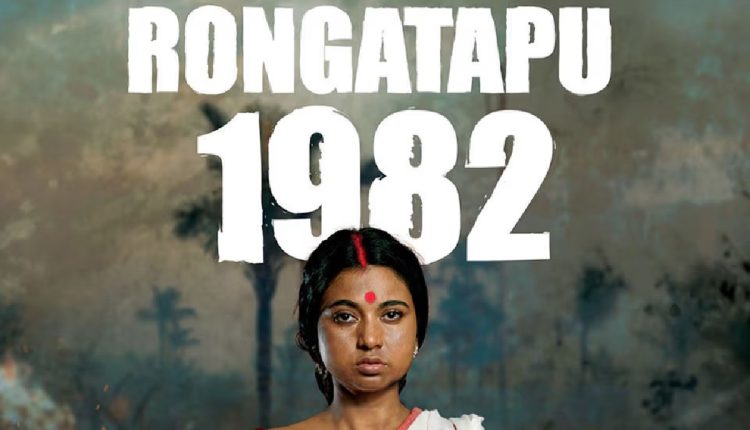Rongatapu 1982: When Memory Bleeds into History
Winner – Best Assamese Feature Film | 71st National Film Awards 2025
National Recognition
Bringing national glory to Assam, Rongatapu 1982 was awarded Best Feature Film in Assamese at the 71st National Film Awards. Directed by Rashmi Sharma, this powerful period drama unfolds during one of Assam’s most politically sensitive eras, blending personal tragedy with public turmoil. It’s a haunting cinematic tribute to a time many remember, but few have truly processed.
Synopsis
Set in the turbulent year of 1982, Rongatapu (meaning Red Land) is centered around a fictional rural village caught in the crossfire of the Assam Agitation — a powerful socio-political movement that shaped the identity of the Assamese people.
The story follows Biju, a schoolteacher who returns to his native village after studying in Guwahati. As ethnic tensions simmer, his idealism is tested by communal conflict, state violence, and deep-rooted fear. Caught between his duty to educate and his desire to protect, Biju’s moral crisis reflects a generation torn between hope and horror.
Why It Deserved the National Award
1. Bold Exploration of a Political Past
Rongatapu 1982 tackles a period rarely addressed in Assamese cinema — the emotional and physical cost of identity politics. The film offers an unflinching look at how ordinary people suffer in extraordinary times.
2. Historical Context with Personal Intimacy
The political is made deeply personal. Through Biju’s eyes, we witness the unraveling of trust, the silencing of dissent, and the emotional toll of inherited fear.
3. Cultural Accuracy and Language Integrity
From traditional attire to regional dialects and period-appropriate props, every frame oozes cultural fidelity. Even folk songs and handwritten posters recreate the era with chilling authenticity. Powerful Performances
-
Jatin Bora as Biju – A layered and compelling portrayal of a man slowly losing faith in both systems and relationships. His inner conflict forms the soul of the film.
-
Barsha Rani Bishaya – As Biju’s wife, she becomes the emotional anchor, reminding us that revolutions begin — and often end — in the household.
-
Supporting Cast – Local actors and non-professionals add realism, especially in village council scenes and protest sequences.
Technical Excellence
-
Cinematography: Earthy tones, smoke-filled skies, and subdued lighting build a landscape of tension and sorrow. The contrast between calm rice fields and burning documents is poetic.
-
Sound Design: Traditional instruments, silence between dialogues, and protest chants create a dense sonic atmosphere.
-
Editing: The non-linear narrative reveals layers of trauma as memories of violence interrupt present moments, showing how history lives on in people.
Themes That Echo Today
-
Youth vs. System
-
Education as Resistance
-
Ethnic conflict and identity crisis
-
Silent trauma of political upheaval
“We didn’t just lose lives in 1982. We lost the sound of laughter, and the courage to ask why.”
— Rongatapu 1982
Critical Response
Rongatapu 1982 was widely praised for its courage, historical sensitivity, and emotional honesty. The National Award jury commended it as “a soulful representation of a suppressed chapter in Indian socio-political history, told through the quiet heroism of a rural schoolteacher.”
Cultural Significance
This film marks a turning point for Assamese cinema — proving that regional stories can address national wounds with grace and grit. It sparked conversations in universities and film forums, especially among students and historians.
Final Word
Rongatapu 1982 is not just a film — it’s a wound reopened for healing. It forces us to remember the stories that were never recorded in history books, but that live on in whispered village conversations. With its emotional weight and cultural honesty, this Assamese gem truly deserved its National Award.


Comments are closed.